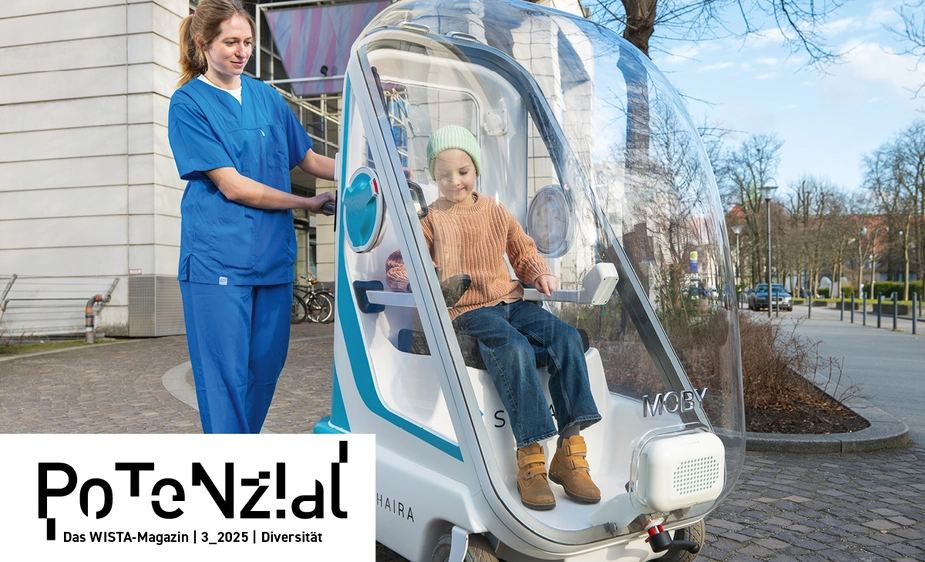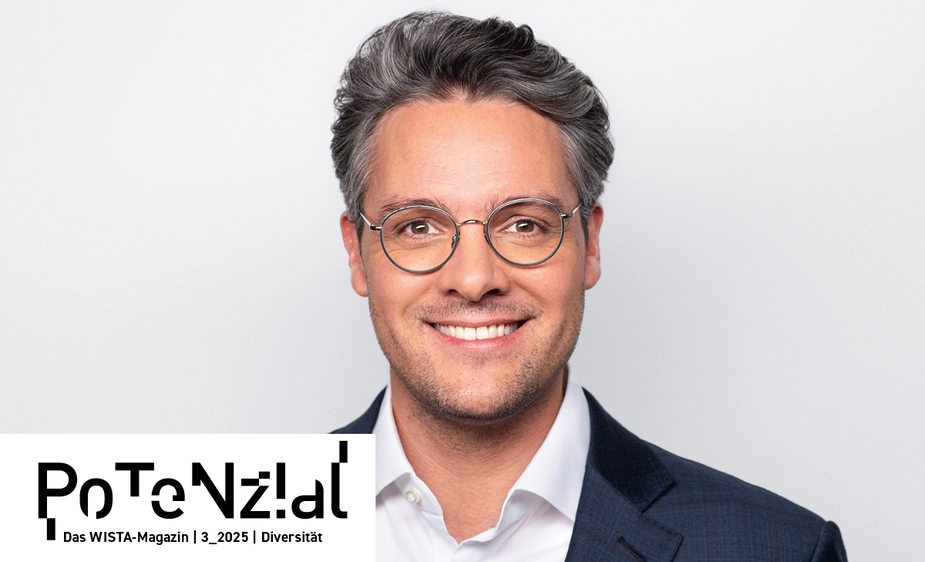Inclusive cleanroom on wheels
The start-up Sphaira from the Charlottenburg Innovation Centre CHIC develops electric vehicles for transporting patients
It comes as no surprise that feelings of isolation are common in isolation wards. Whether the patients are younger or older, being cut off from the outside world for weeks, and sometimes months on end, takes a toll on anyone. The young company Sphaira Medical GmbH is therefore developing a mobile high-tech cleanroom that is able to maintain a connection to the outside world. But the start-up’s plans go far beyond that.
MOBY is an exclusive vehicle. The almost entirely transparent, electrically-powered capsule is on wheels and joystick-controlled. It has a high-quality intercom system and offers ample head and leg room, even for tall people. Its inhabitants breathe the cleanest air possible. More than three million euros have already been invested in its development. But make no mistake: It’s not exclusivity that defines MOBY. It’s inclusion and participation.
“The idea emerged during the pandemic,” says Janis Münch, founder and managing director of Sphaira Medical GmbH, which is currently bringing MOBY to market at the Charlottenburg start-up centre CHIC. The images from Bergamo and reports from hospitals and care homes, of people fighting a lonely battle with death, were the catalyst for him to think about a concrete solution. Engaging with hospitals, it quickly became clear that this was not a temporary problem that would disappear after the pandemic. On the contrary, the problem is widespread. Many patients’ immune systems are so weakened that they need to be isolated for weeks, often months. Conversely, patients returning from trips abroad with unclear symptoms must be strictly isolated until a safe diagnosis is made. This isolation takes a toll on people’s mental health. For children, being excluded from their lives and families for months is particularly straining.
MOBY aims to change this. A prototype is already in use on a children’s cancer ward at Berlin’s Charité Hospital. It is controlled by the small patients who breath the germ-free air within. Certified according to medical device regulations, the electric vehicle filters the air using high-quality filters and is safer than the isolation wards themselves. “We meet the requirements of Cleanroom Class 2, which are set for the production of microchips or spacecraft assembly,” says Münch. Already, the start-up is receiving enquiries from clinics all over the world. In parallel to the vehicle’s development, research is being conducted to explore how contact with the outside world—patients can take MOBY on little trips outside the hospital— can support the healing process and accelerate recovery. This is crucial for the long-term goal of obtaining approval by statutory health insurance companies.
Management expert Münch and his team, which now consists of a dozen members from eight different countries, have received a wealth of feedback from hospitals and investors, helping to continuously refine the start-up’s profile and strategy. “Especially hospitals in the US are asking us about the autonomous vehicles,” says the founder. In hospitals with 1,000 beds, around 200,000 patients have to be transported annually. There is a real lack of staff for this. And thus, it would be a real relief if vehicles like MOBY could handle these transports or guide patients who can walk independently to their next examination. The need for autonomous transporters for mobility-impaired people and guidance robots extends far beyond hospitals to include airports and train stations.
Sphaira is pursuing these markets with a consistent strategy, focusing on a platform model for MOBY and its offshoots. In addition to the hardware platform with numerous surrounding sensors, the team is pushing forward a software platform that will facilitate autonomous transportation. They have established a network of hospitals, technology partners, and both private and public investors. Münch sees this as just the foundation. “We’ll need considerable staying power to establish ourselves in the clinical sector,” he says. Hence, the focus on other application areas with simpler access. To unlock these, more capital is needed. Sphaira is already working on a new round of funding to achieve their mission for the future: to have as many patients as possible making their rounds in an inclusive cleanroom vehicle in real life.
Peter Trechow for Potenzial

